#lesbians of color
Text
Happy Lesbian visibility week!
here’s some dykes (all drawn by me)
✨💅🏳️🌈♥️🧡🤍🩷💜
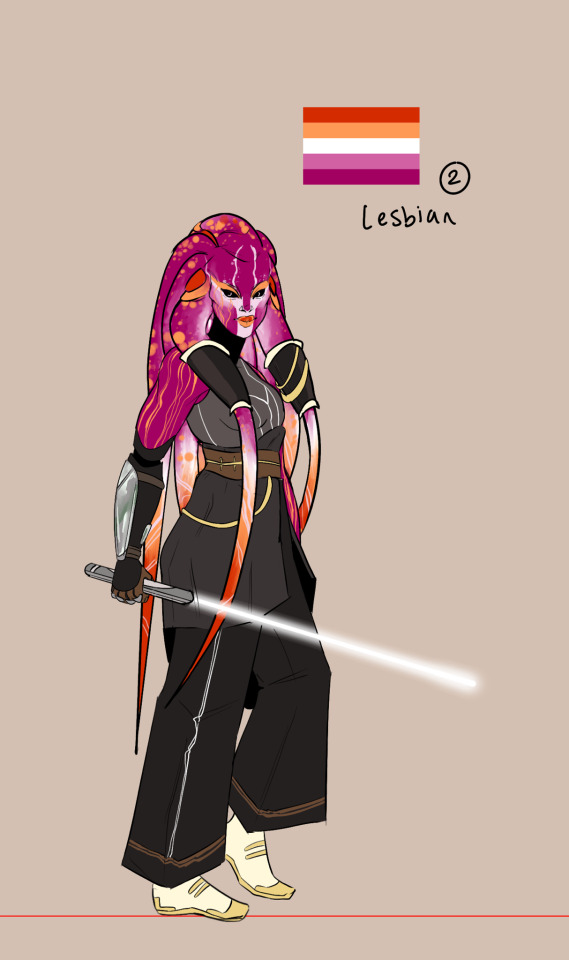




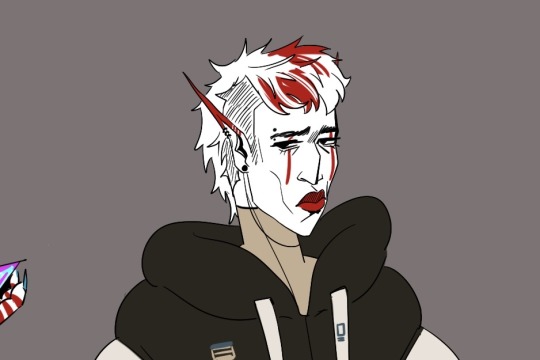



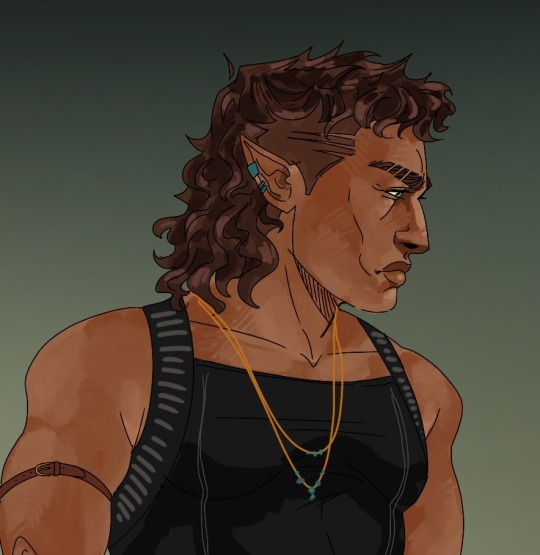
#lesbians of color#lesbian#happy lesbian visibility week!!!#lesbian visibility week#lesbian art#lesbian pride#dyke#dyke art#dykes#queer#lgbtqia#sapphic#butch#femme#lgbtq#ro’s art and design
21 notes
·
View notes
Text

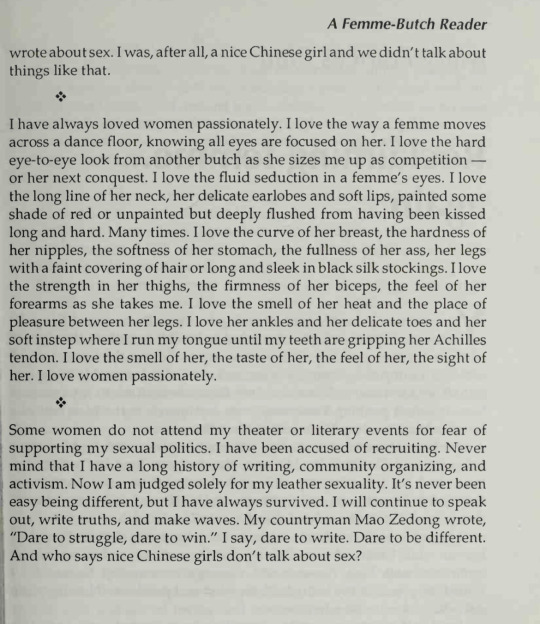

"I was born thirty eight years ago and raised to be a nice Chinese girl. But nice Chinese girls don't grow up to be dykes and rebels. And I turned out to be both.
I grew up on silence. Though I was part of a large extended family, we ate in silence. There was no conversation or laughter, just the sound of soup spoons and chopsticks against rice bowls. I was not encouraged to talk, express emotions, or ask questions. I grew up with a heritage of silence.
I was a girl child, the first born in a traditional Chinese family, raised to be seen but not heard, raised to excel in school but not be curious, raised to be someone's wife but not to be a person of my own. When I was growing up in England, Hong Kong, and San Francisco, I read everything I could get my hands on, but none of the books spoke of my own experience. I started writing when I was eleven years old to fill the silence and to turn the years of rejection into affirmation.
You're probably wondering what the hell any of this h as to do with sex. The answer is- plenty. What I write is shaped by my history and experience as both a Chinese woman and as a lesbian.
Chinese is my first language. But I was fluent only in the words my parents deemed it necessary for me to know. I was certainly not taught the words for breast, cunt, ass, or orgasm. There were no words for sex; therefore, sex did not exist.
I came out as a lesbian when I was twenty-one, but I didn't start writing about sex until almost a decade later. Sure, I wrote love poems, but I never wrote about sex. I was, after all, a nice Chinese girl and we didn't''t talk about things like that.
--
I have always loved women passionately. I love the way a femme moves across a dance floor, knowing all eyes are focused on her. I love the hard eye-to-eye look from another butch as she sizes me up as competition- or her next conquest. I love the fluid seduction in a femmes eyes. I love the long line of her neck, her delicate earlobes and soft lips, painted some shade of red or unpainted but deeply flushed from having been kissed long and hard. Many times. I love the curve of her breast, the hardness of her nipples, the softness of her stomach, the fullness of her ass, her legs with a faint covering of hair or long and sleek in black silk stockings. I love the strength of her in her thighs, the firmness of her biceps, the feel of her forearms as she takes me. I love the smell of her heat and the place of pleasure between her legs. I love her ankles and her delicate toes and her soft instep where I run my tongue until my teeth are gripping her Achilles tendon. I love the smell of her, the taste of her, the feel of her, the sight of her. I love women passionately.
--
Some women do not attend my theater or literary events for fear of supporting my sexual politics. I have been accused of recruiting. Never mind that I have a long history of writing, community organizing, and activism. Now I am judged solely for my leather sexuality. It's never been easy being different, but I have always survived. I will continue to speak out, write truths, and make waves. My countryman Mao Zedong wrote, "Dare to struggle, dare to win." I say, dare to write. Dare to be different. And who says nice Chinese girls don't talk about sex?"
"Who Says we Don't Talk About Sex?" Kitty Tsui, The Persistent Desire, (Edited by Joan Nestle) (1992)
#lesbian#lesbianism#the persistent desire#butch femme#butch lesbian#femme lesbian#butch#femme#lesbian writing#lesbian history#asian lesbians#lesbians of color#chinese lesbians#writing#recs
4K notes
·
View notes
Text

The Emerging Lesbian: Female Same-Sex Desire in Modern China, Tze-Lan D. Sang, 2003
8K notes
·
View notes
Photo

Happy lesbian visibility week
#lesbian visibility week#lesbian#lesbian pride#nonbinary lesbians#happy lesbian visibility week#lesbians of color#black lesbians#native lesbian#disabled lesbians#muslim lesbians
283 notes
·
View notes
Text
ANYWAYZ, I love you lesbians. I love you trans lesbians. I love you black lesbians. I love you lesbians of color. I love you fat lesbians. I love you hairy lesbians. I love disabled lesbians. I love you Jewish lesbians. I love you Muslim lesbians. I love you bald lesbians. I love you autistic lesbians. I love you he/him lesbians. I love you mentally ill lesbians. I love you lesbian pilots. I love you studs. I love you butches. I love you lesbians who make their entire personality about being a lesbian.
I love you lesbians were/are told all their life that they just need to "find the right man" or "that a man would fix them". I think you're perfect just the way you are!!! And I love you (if that wasn't clear enough)!!!!!
Pro.shippers DNI. Bi.lesbians n terfs obviously DNI💀
#rants n rambles#lesbian positivity#positivity post#lesbian#lgbtq community#lesbian appreciation post#guys guess who the pilot lesbian is you're not gonna believe it#lesbian community#why arent there any lesbian tags#lesbians of color#butches#studs#lgbt positivity#lgbt pride#lesbian pride
53 notes
·
View notes
Text
I've decided that from now I'll hold every sapphic media to the A League of Their Own standard. Meaning that if it does not have AT LEAST a single butch and a single sapphic of color it is not good enough for me because it does not represent me.
#sapphic shows#lesbian#sapphic#lgbtq#sapphic rep#lesbian shows#sapphics of color#lesbians of color#butch#butch lesbians#aloto#a league of their own
78 notes
·
View notes
Text

Rev. Dr. Pamela Lightsey: the first out Black lesbian elder in The United Methodist Church.
#pamela lightsey#lesbian women#black lesbians#lgbt women of color#lesbians of color#black queer firsts#black queer notables
33 notes
·
View notes
Text


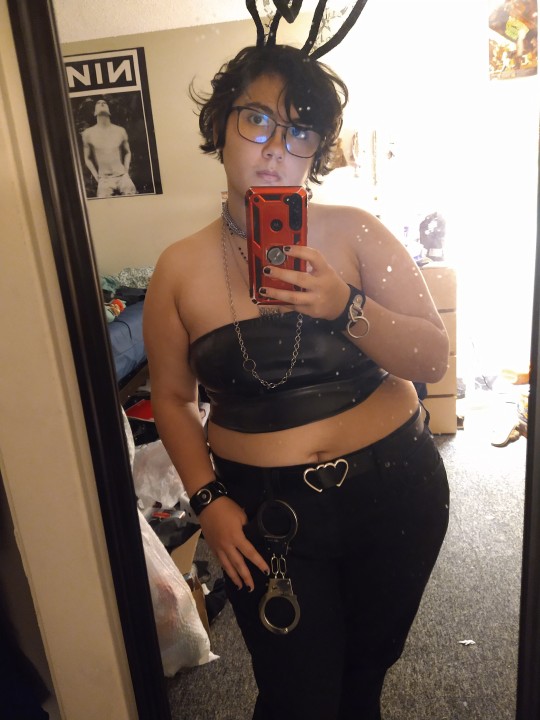

bnuuyyyy !
(ey/em 💥 xy/xyr)
#convincing myself im so masc in this fit. btw#butch lesbian#lesbians of color#qpoc selfies#asian butch#face.png#static.soundz#also. be so nice and ignore how messy the room is ❗❗❗
20 notes
·
View notes
Text
on the first kill cancellation and what it tells us about representation in media
the most heartbreaking part about the first kill cancellation is that it’s an evidence of this trend in audiovisual media big corporations to profit over claims about representation, all while delivering the most sanitized and harmless to the consumption by the cis het , white, able-bodied etc people form of representation they could possibly offer.
because, that’s the thing, back in 2016, when lexa from the 100 and plenty other lesbian and queer characters in general were killed off of shows and it sparked a whole conversation over the "bury your gays" trope, our biggest hope was that having more people from marginalized groups making the decisions in the writers’ room and as showrunners would result in better representation for us.
and, the thing is that, while lots of people were concearned about shaming the show for having CGI problems – problems that are perfectly explained by the very low-budget the show got from netflix --, the truth is that first kill actually achieved a lot in the “representation on behind-the-scenes” front.
the author of the short story it’s based on, victoria “v.e.” schwab, is queer, identifying as gay and using she/they pronouns, and also signed as showrunner, inspite having an adviser role. Not only that, but victoria declared in interviews and even penned an article talking about how they wrote the short story and the pilot for the show in an attempt of giving to the new generations the representation she needed as a teen and longed for when she watched sci-fi/fantasy shows like buffy the vampire slayer.
the “the facto” shworunner, felicia d. henderson, is not queer, she is a cis het woman, but, she is still a dark-skinned black woman with a long and successful resumé in the show biz, with classic shows hailed by the african american community like fresh prince of bel-air and moesha under her belt, and who also worked for DC in their comics’ division (yeah, THE DC Comics) and worked on marvel’s the punisher, in other words, one of the best people you could possibly ask for to work on a sci-fi/fantasy show in which a huge part of the main cast is comprised by black people – actually, to work on sci-fi/fantasy shows in general.
both felicia and victoria have mentioned plenty of times on social media, interviews and so on about how diverse the writer’s room was.
not only that, but they also talked about how there was representation on the production crew as well . people on the camera crew, make-up crew, wardrobe crew, the cinematography crew etc, were all comprised by black people and queer people , an information that was also shared with pride and enthusiams by the leading actresses sarah catherine hook and imani lewis on their interviews.
so, the representation on FK wasn’t just on the characters on screen, it was on the entire production chain.
and, yet, it wasn’t enough for preventing us from losing the representation, because the show got cancelled.
this is not to say that we should give up on trying to get more people from marginalized groups working on behind-the-scenes or anything like that, especially because, I things are hard enough when we try to occupy these spaces, if we stop fighting for space, then that’s when things will not getter better AT. ALL.
but we should definetely stop to think about what do we mean when we say we want more representation and what kind of content we praise or not.
back in 2018, under the release of love simon on movie theatres, buzzfeed news published an article written by contributor john sherman titled “Popular Gay Media Is Still Focusing On Straight Acceptance, Rather Than Celebrating Queer Difference”, inspired mostly by the new york times article by queer and non-binary activist, writer, producer, television host and actor jacob tobia, “Does Gay Hollywood Have Room for Queer Kids?”, and both articles pointed out how the movie’s entire narrative was structured around the Idea that simon was just like another guy, except that he was gay and reinforces the discourse that it’s ok to be gay, as long as you’re “not TOO gay”, especially considering the way the narrative uses feminine, gender non-conforming, flamboyant and campy gay ethan as a prop for masculine, straight-passing gay simon’s story, using the bullying ethan goes thru the entirety of the movie as an excuse for simon to not come out all while never really having simon acknowledging how he was embarassed by ethan because he was struggling with his own internalized homophobia.
four years later, and these articles are actually more relevant than ever.
because here is the thing: the discourse revolving around the need for more “wholesome” queer representation, while completely valid when it comes to defend the production of more LGBT+ content aimed at children and pre-teens, oftenly gets mixed up on the internet with very conservative opinions about LGBT+ sexuality, gender expression and lifestyle choices.
that is what is problematic about the heartstopper vs first kill debate, that started really as soon as the first teaser trailers for FK were released and people begin to make assumptions about how FK was gonna sexualize women and cater to the male gaze, and now took another turn after the cancellation news when FK fans, lesbians in general, BIPOC in general and so on started to point out Netflix’s and the entertaiment industry’s double standards when it comes to the representation of the LGBT+ community, favoring cis White queer, able-bodied, slim, masculine men over all the other groups in the community .
It’s not that heartstopper is bad or awful or that it should have been cancelled like first kill was, that’s definetely not the point.
heartstopper as a franchise is actually far bolder than love simon ever could, with the comics talking about topics like bullying and mental illness, shining a light in some topics not so talked about in media like anorexia and body dysmorphia in young boys, storylines that the fans hope to see in the new seasons of the show .
on top of that, it did a great job at portraying Nick’s realisation about his bisexuality and ditching the “bisexuals are traitors and manipulative” trope by contrasting nick’s honesty about his sexual confusion and his loyalty to charlie to the toxic and abusive way Ben treated charlie during their secret relationship.
still, it is a show that is centered around two cis White boys and that has lesbians, trans people and people of color as side characters at most, being in the background of the cis white boys’s love story, like a book footnote.
and the thing is, most people don't care about the book footnotes.
tao and elle, the straight couple formed by a cis chinese british boy and a trans black girl of egyptian descent, is still on the background, not the fore front.
and while tao defying gender norms about cis het boys is a very welcome change, nick and charlie, the main characters, are still pretty much very masculine, straight-passing boys. also, the fact that, from all the boys, it is the asian guy who is the less traditionally masculine when we consider the way western culture desexualizes and mock asian men
yes, charlie is bullied by the school’s rugby athletes for not being masculine enough, but, in spite of being gay, he is not much different from the same old cis het nerdy white guy in coming of age movies and indie movies, who is sensitive and listens to indie bands and is some sort of “cool loser”.
and nick nelson is still the very stereotype of the masculine jock, except that he is the “gentle brute" type.
it’s important to note that not only non-binary bisexuals do exist, but also that gender non-conforming cis bisexuals exist as well. there are bi guys with a gender expression that is affeminated, and also there are bi girls with a gender expression that is masculine.
when it comes to the lesbian interracial couple, formed by masculine white girl darcy and more feminine, dark-skinned black girl tara, they are side characters in nick and charlie’s story like tao and elle, having a smaller role than taoelle.
i actually remember reading somewhere that one of the changes the show made from the comics was to actually give a bigger role to tara and darcy, with the storyline about how their school reacted when tara came out actually being exclusive to the show, which means that their roles were even smaller.
and while it’s true that these side characters are still more rounded than your typical side characters, they’re still, guess what? Side characters.
people like tara and darcy, tao and elle deserve to be the main characters in their own fictional stories too, much like they are the main characters in their stories in real life.
people like calliope and juliette deserve to be the main characters in their own fictional stories too.
especially in a genre like the sci-fi/fantasy one, that is beloved by queer people and people of color for its fantastical elements and adventures and themes that flirt with the weird, unusual and that these and marginalized groups in general find comfort in because the social outcasts relate to the weirdness of it all.
so, it’s very important that we have shows like first kill and main characters like juliette fairmont and calliope burns, out and proud lesbians who are comfortable in their sexuality and whose biggest conflict with their families is not about their queerness, but because one is a monster hunter and the other is a vampire; who never get to face homophobia; and get to be the main characters and kick butts on screen and be the heroes just like cis het white abled-bodied people, mostly cis het white abled-bodied guys, get to do.
all this talk is because we have to question what has been sold to us as diversity and inclusion.
because diversity and inclusion don’t involve people from marginalized groups forcing themselves to fit into the standards of the dominant groups just to be accepted and be treated with basic human decency.
Queer people shouldn’t have to repress their sexuality and gender expression to be accepted, much like autistic and neurodivergent people shouldn’t have to supress their quirks like stimming or the way they react to sensory overload to be accepted, or like fat people shouldn’t have to lose weight, or indigenous people shouldn’t have to abandon their cultures to fit in, or like people with disabilities shouldn’t have to display some form of productivity to be accepted and so on.
We shouldn’t have to water ourselves down, it��s society that should create a safe space so we can live on it according to our experiences.
and that’s why the discourses revolving around normalcy are so tricky and can get problematic very easily, because while it was useful in the past, as the buzzfeed article points out, it also reinforces the Idea that there’s something naturally wrong with being different from what society says it’s the norm.
and we can see the wa ythis mindset is spreading around the internet, even amongst teens and twenty-somethings, as we can see by the whole discourse against the use of the word “queer”, even if it was historically reclaimed by the LGBT+ community.
or the way we can see people on tumblr spreading the "the kinky community shouldn't be at pride" discourse.
“queer” is precisely about celebrating the differences as they are what makes the experience of being yourself so unique, and it’s also precisely a reaction about the way the narrative about LGBT+ activism was historically centered around the experiences of cis het gay men and cis achilleans in general.
so, when we see society being more receptive towards the boys from heartstopper and not towards the girls from first kill, it doesn’t happen by accident, it's a part of an entire social structure.
the same goes for the topic about femininity and sexuality. traditional social conventions about sexuality basically censor and shame woman and transfeminine people for having any interest in sex and , something that, combined with the conventions about queer desire and attraction being wrong or predatory, creates a scenario of intense sexual repression in ways that it doesn’t happen with cis white men -- except for, maybe, the disabled ones.
the way people reacted so negatively against the calliette make out scenes wasn’t an accident, it was part of this structure that shames female pleasure, interracial sex, lesbian sex and acts like girls and women are uncapable of enjoying sex, having sexual desire and having any interest in the matter.
that’s the kind of nuance that usually escapes from conversations about fetishization of women: it’s not that we are uncapable of sexual desire, it’s just that most of the narratives put us in a position of objetcs instead of agents. that’s what the male gaze is about, taking our agency and input on the matter from us to cater to cis het men’s fantasies of power.
and male gaze is not what happened in first kill, a show in which felicia, the showrunner, made sure to ask for the lesbians and sapphics on set for their advice and input over the calliette scenes to make sure the final product were true to the lesbian and sapphic experience rather than the assumptions of a cis het woman about the lesbian and sapphic experience. not only that, the show hired an intimacy coordinator, named dr. tiff, that, if I’m not wrong, is a queer woman as well, to help the actresses feel comfortable even with the smallest of touches, like a hand on a shoulder or a hug, and it was discussed amongst said intimacy coordinator, the directors, the showrunner and the actresses how to portray the scenes between calliope and juliette without sexualizing the teenagers too much, how to find a balance between showing the interest of non-asexual 16 year-old girls on sex and not oversexualising them . one can’t be further from the male gaze and fetishization as that.
still on the topic of sex, it’s not a coincidence that the general audiences were so receptive of heartstopper, because the show is almost devoid of sexual scenes.
of course, this isn’t a problem on itself, especially because it seems like the show is aiming not only at teenagers, but at children as well.
but it gets problematic when people begin to defend that all types of LGBT+ media representation should adhere to these standards even if they’re not aiming at children and pre-teens as their target audiences.
especially because it’s not just lesbians and sapphics, or just trans people in general, who are shamed and have their sexuality treated as inherently wrong and predatory, it happens with cis gays and achilleans as well.
again, and I can’t emphasize this enough, there is nothing wrong with heartstopper.
there’s nothing wrong with LGBT+ media that is fluffy, family-friendly and PG-rated.
the problem is that LGBT+ fiction, and fiction about marginalized groups in general, shouldn’t have to be forced to adhere to the fluffy, family-friendly, PG standards to have a space in media and not get cancelled by networks and streaming services; and that media companies are imposing these conditions for LGBT+ content because they know these standards are seen as harmless by the cis het white audiences, and, therefore, these media companies are profiting over a serious cause like that of diversity and representation all while continuing to treat the cis het, white, abled-bodied, skinny etc audience as the only valuable one.
this is not about fandom wars, and some people are right when they say that there is space for all types of queer shows, for shows like heartstopper and for shows like first kill alike.
the important question here is why is it that we from marginalized groups are forced to adhere to all these respectability politics to be accepted when cis het, white, abled-bodied, skinny etc people aren’t.
don’t know whether first kill can be saved by another network like it happened with one day at a time, or what the future holds, but, that is the important question that we all should take from this mess.
and, most of all, we got to remember that we can and deserve to have so much better than what companies are delivering to us, and we don’t have to settle for less, in pop culture and in any other area of society.
#first kill#first kill netflix#first kill cancellation#calliope burns#juliette fairmont#calliette#calliope x juliette#lgbt#lgbt+#queer#lgbtqia#lgbt representation#lesbian#lesbian representation#sapphics#sapphic representation#lesbians of color#black lesbians#sapphics of color#black sapphics#wlw#wlw representation#wlwoc#gay#bisexual#pansexual#save first kill
185 notes
·
View notes
Text
Happy lesbian day!!!! We support all lesbians in this household. It’s such a big and diverse community with lots of history and subcultures and experiences and that should be celebrated
#t/rfs and exclus fuck off this post isn’t for you#lesbian#lgbtq#trans lesbian#non-binary lesbian#gnc lesbian#he/him lesbian#they/them lesbian#multigender lesbian#genderfluid lesbian#Butch lesbian#femme lesbian#intersex lesbian#neopronouns lesbians#aspec lesbian#arospec lesbian#lesboy#mspec lesbian#disabled lesbians#lesbians of color#support ALL lesbians
68 notes
·
View notes
Text
Shoutout to hairy lesbians of color! You're amazing just as you are. Don't let anyone convince you otherwise.
#q#sapphic#mod lavender#our post#lesbian#lesbians#lgbt#wlwoc#qwoc#qpoc#lesbians of color#sapphic positivity#lesbian positivity#woc positivity#poc positivity#qwoc positivity#black lesbians#brown lesbians#asian lesbians#hairy lesbians#hairy#body positive#bopo
126 notes
·
View notes
Text

Black and White Women Together, Bettye Lane, 1984
#image#lesbian#lesbianism#lesbians of color#black lesbians#80s#feminism#activism#protest#poster#bettye lane
970 notes
·
View notes
Text
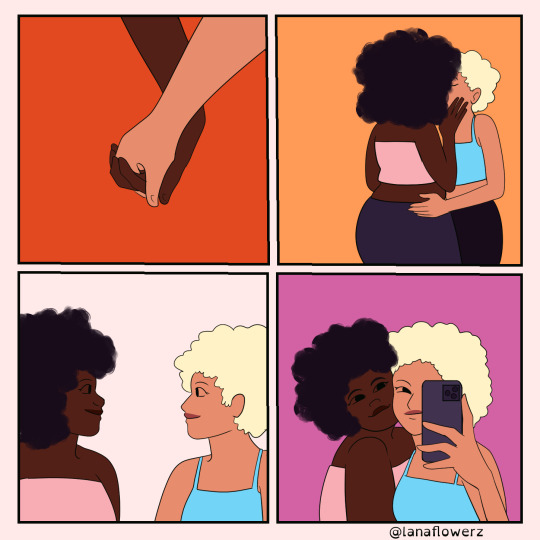
#wlw#wlw love#sapphic#lesbian#bisexual#pansexual#cute#lesbian pride#lesbians of color#wlw post#comic
16 notes
·
View notes
Text
LESBIAN SEPARATISM SUPPORTERS BLOCKLIST
Since there's been a lot of lesbian separatist ideology being thrown around this month, we decided to make a blocklist for people who support lesbian separatism. This was inspired by @lustrous-globe's Twitter blocklist through the formatting, but he is not involved with this blocklist, so please do not approach him about it.
The Blocklist / The Web Archive Version
What is lesbian separatism?
Q&A:
Who are you?
A lesbian who hates lesbian separatists. That's all you need to know.
Why are you doing this?
Because queer people deserve to have a safe space free of people like lesbian separatists.
What's so bad about lesbian separatism?
It's a white radfem centric movement based around forcing trans lesbians, lesbians of color (especially black lesbians), butch lesbians, femme lesbians, and bi lesbians out of lesbian spaces. It also gatekeeps many queer terms as "lesbian exclusive." This even includes butch and femme despite the original movement being against butches and femmes. Today this manifests as massive harassment campaigns towards these lesbians.
TL;DR: It's a movement spearheaded by white TERFs that's ahistorical and disrespectful to the queer people who fought for our rights, disrespectful to the history of ballroom culture, and another attempt to divide queer people.
Can you remove me from the list?
Not unless you've changed your beliefs.
But I'm being harassed!
If you're being harassed, DM me a link and a screenshot of the person harassing you and they'll be blocked from the blog. Anons are not valid proof as they're easy to fake and easy to avoid by just turning off anon.
[Any attempts to garner sympathy for your disgusting movement.]
Boo-hoo, it must be so hard being a slimey sack of shit who harasses other lesbians for existing and blames them for lesbophobia. You poor, poor thing, let's play you a song on the world's smallest violin.
Put me on your list <3
Okay! Have fun being a total piece of shit <3
#blocklist#queerphobe blocklist#terf blocklist#exclusionist blocklist#trans lesbians#mspec lesbians#butch lesbians#femme lesbians#lesbians of color#pinned post
12 notes
·
View notes
Text
In Search of Self: a Study of Queer Arab Women
In the United States Post Migration by Lexi Haddad
#lesbian#lesbians of color#queer woc#woc lesbians#lesbian woc#sapphic woc#women of color#queer woman of color#Arab women#middle east#swana#queer Arabs#queer middle eastern people#queer mena#queer swana#Arab sapphics#muslim lesbian#middle eastern#diaspora#Arab lesbians#lesbian identity#literature
5 notes
·
View notes
Text
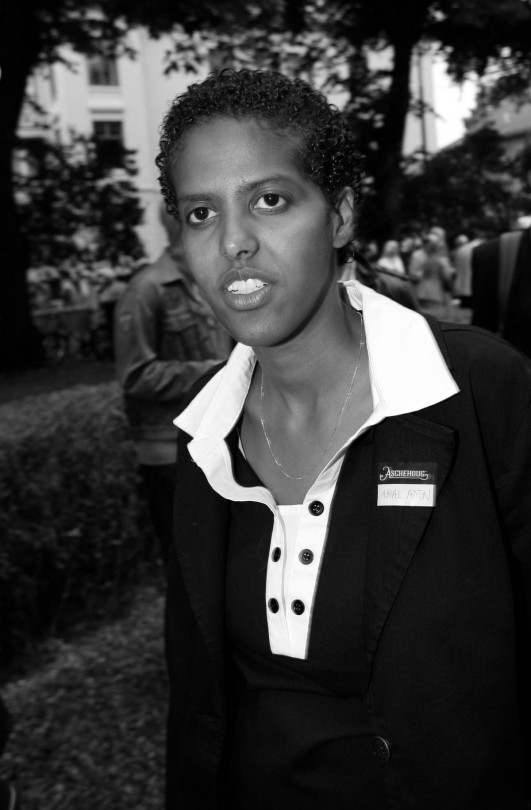
Amal Aden: award-winning author, interpreter, lecturer, and outspoken Muslim-lesbian activist; member of the Norwegian Press Complaints Commission
#amal aden#lgbt#african lgbt#black queer notables#lesbians#lesbians of color#lgbt women#queer women of color#lavandnoir#queer women#lgbt activism
81 notes
·
View notes